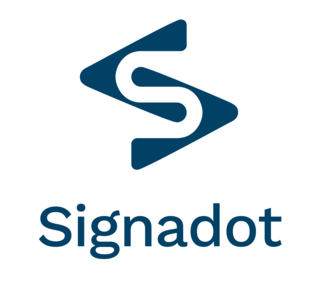Website: www.ssrlabs.com
Founder: Axel Kloth
Headquarters: Palo Alto
Year Founded: 2011
Investors: Bootstrapped
Linked In: linkedin.com/company/scalable-systems-research-labs-inc-
Company Description: SSRLabs develops and sells energy-efficient coprocessors for numerically intensive, as well as artificial intelligence, applications.
# # #
 By Axel Kloth, founder, president and CEO
By Axel Kloth, founder, president and CEO
Product Overview
SSRLabs is focused on the development and sale of a family of coprocessors which allow applications to run faster for customers who demand higher performance and where the power supply or cooling capacity is limited. These coprocessors work with a variety of standards-based application programming interfaces (APIs). SSRLabs’ family of coprocessors improves floating-point computation and analysis of multi-dimensional datasets at substantially higher performance levels and lower power consumption compared to traditional processors. The combination of coprocessors and standards-based application programming interfaces enable linear scaling. This includes applications in data analysis including social data, financial modeling, crash test simulations, weather forecasting, business process optimization and mapping of the human brain. High power consumption and excess heat generation are major challenges in data centers and High Performance Computation applications. Our processors and APIs address this challenge.
Founder’s Story
I have been granted eight U.S. patents in processor architectures, real-time image and video processing and analysis, communications protocols, and device architecture. Prior to SSRLabs, I was tasked with the implementation of a unified CAD Design System at FormFactor. Before that, I was a founder and member of the executive management team in a Silicon Valley startup (Parimics). At Parimics, I created the underlying architecture for and supervised the implementation of a massively parallel chipset targeted at real-time image and video analysis. This was achieved by deploying parallel processors before even Intel discovered the need to go parallel. Prior to that, I helped turn around HotRail from a $36 million loss into a $394 million acquisition target within ten months. Before that, I was on the career fast track at Siemens in Germany, developing the first multi-processor tester ever.
Marketing/Promotion Strategy
SSRLabs has partnered up with a well-known PR agency (Small Planet PR), and at this point in time the traffic to our website is sufficient to support current operations and future growth. We rely on word-of-mouth referrals as much as we do on new customers coming through our website, and considering that our basic technology has been developed with funds from the Seed round, there are no major other expenses that SSRLabs incurs at this point in time other than for support and continued development. Our web presence and our proven word-of-mouth referrals will carry us to the next stage. We will continue to post on LinkedIn, on AboutUs, on LinkSV and on Spoke, and at a later time we may add a Google+ corporate page. We will also continue to blog about events that we feel impact our industry at ssrlabs.com/about-us/blog.html.
Market Opportunity
According to Gartner (‘Gartner Says Worldwide Semiconductor Spending to Reach $316 Billion in 2012, a 4 Percent Increase from 2011’) the semiconductor space that SSRLabs is pursuing shows a TAM of $9.5 billion. We will only include quad-core processors targeted at tablets for comparison since we anticipate that there will be an even larger pull for our coprocessors if servers are going to be ARM-based. We assume that our coprocessors and coprocessor-based system boards will add initially one percent to that TAM once we have them available for sale to the general public. In that worst-case scenario, they generate a $95 million revenue stream annually. Both the total size and the portion that is available to SSRLabs will grow very substantially and will quickly eclipse Xeon processor shipments since the foreseeable transition to ARM will necessitate floating-point and neural net coprocessors. As a result, we anticipate a $2 billion annual TAM for SSRLabs.
How We’re Different from the Competition
SSRLabs’ product line differentiates itself from the competition by technology, usability, and by our commitment to improve the competitiveness of our customers. SSRLabs’ pScale neural network and floating point coprocessor solutions provide superior math and analytics functions in a fully scalable fashion. pScale coprocessors accelerate multi-dimensional analysis and deliver high precision floating point performance with lower power consumption, thus enabling data center scalability. Lower power consumption leads to higher density, and that in turn allows for data centers to provide substantially better performance at lower cost. pScale coprocessors work with all mainstream host processor architectures.
Business Model
SSRLabs has initiated contact with the open compute project, with server manufacturers, and most importantly, with users of those servers. Those users are operators of data centers, whether they operate a corporate data center or a data center for many clients for Software as a Service (SaaS), Platform as a Service (PaaS), or Infrastructure as a Service (IaaS) purposes. We share the view that a transition to a low-power host CPU for servers is imminent and will take place. We agree with many of these same users that for a class of applications, neither the host CPU nor current coprocessors can fulfill the needs of the end user, and that a new class of coprocessors will be required. We will work with those server manufacturers and the end users to fill the needs for specialized coprocessors and design a solution that will connect SSRLabs’ coprocessors to any host with a PCIe Gen3 interface. We will provide both plug-in cards and system boards that connect through PCIe Gen3, depending on compute density requirements. As a result, we will sell those coprocessors and boards to server manufacturers, to system integrators, and ultimately, as PCIe Gen3 plug-in boards to end users. At this point in time we anticipate that some of the building blocks that we develop for the coprocessors will useable for other projects and companies, and we intend to license those out. This will create revenue before we start selling the coprocessors and boards.
Current Needs
We are currently in the process of raising our A round after the initial Seed round. This will facilitate growth and enable us to hire those contractors that have so far helped us with design and engineering of both our software and the processors. We are also looking for smart and curious interns to help us implement and test some of the ideas we have. Our website has more information on those openings.
SSRLabs – www.ssrlabs.com








